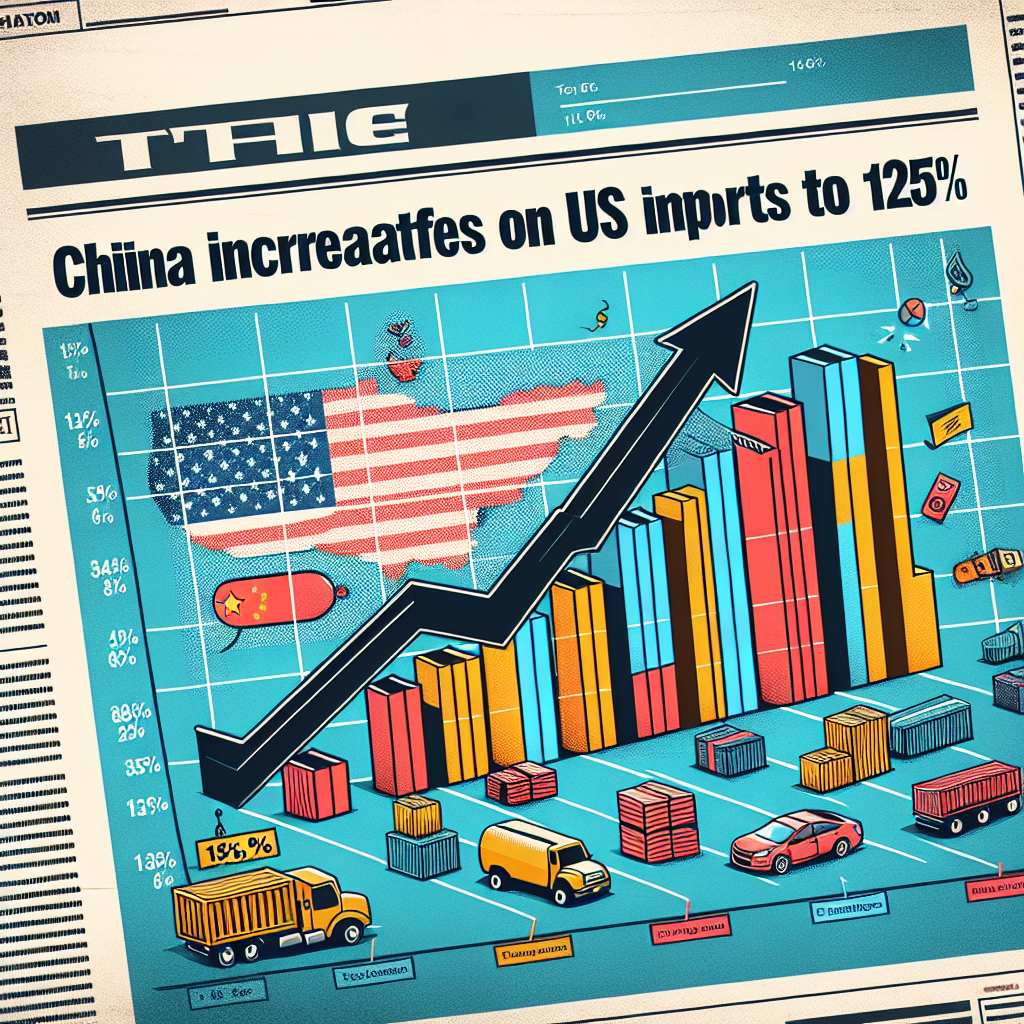China Increases Tariffs on US Imports to 125%
China Increases Tariffs on US Imports to 125%
Overview of the Tariff Hike
In a significant escalation of trade tensions, China has announced a substantial increase in tariffs on imports from the United States, raising them to 125%. This move marks a critical juncture in the ongoing trade dispute between the two economic giants.
Key Drivers Behind the Decision
The decision to increase tariffs is driven by several factors:
- Retaliation: This tariff hike is largely seen as a retaliatory measure against recent US trade policies that have targeted Chinese goods.
- Economic Strategy: China aims to protect its domestic industries and reduce dependency on US imports.
- Political Pressure: The Chinese government is responding to internal pressures to take a firm stance against perceived US economic aggression.
Implications for Global Trade
The increase in tariffs is expected to have wide-ranging effects on global trade dynamics:
- Increased Costs: US exporters will face higher costs, potentially leading to increased prices for consumers.
- Supply Chain Disruptions: Companies reliant on US-China trade may need to seek alternative supply chains.
- Market Volatility: Financial markets may experience increased volatility as investors react to the heightened trade tensions.
Potential Outcomes and Future Developments
As the situation unfolds, several potential outcomes could emerge:
- Negotiations: The tariff increase could prompt renewed negotiations between the US and China to resolve trade disputes.
- Further Escalation: There is a risk of further escalation if both sides continue to impose additional tariffs.
- Global Impact: Other countries may be drawn into the dispute, affecting international trade relations.
Conclusion
The decision by China to increase tariffs on US imports to 125% represents a significant escalation in the ongoing trade conflict. This move is likely to have profound implications for global trade, affecting costs, supply chains, and market stability. As both nations navigate this complex landscape, the potential for negotiations or further escalation remains uncertain, with global economic repercussions hanging in the balance.






































